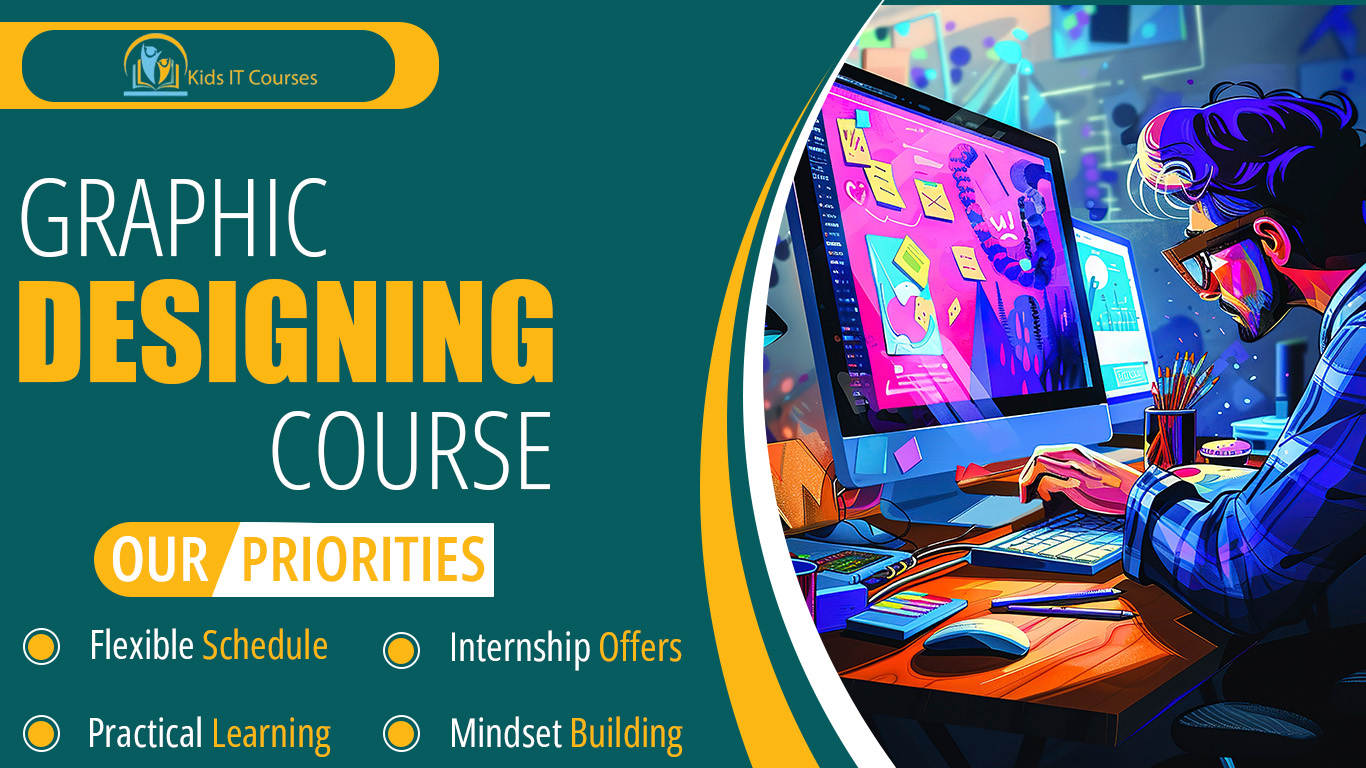
Graphic Designing Course for Kids
Definition
• Kids learn to design posters, cards, logos, and more. It helps them express ideas through colors and shapes.
• They use simple apps like Canva or drawing software. This gives them hands-on practice with digital tools.
• Kids turn their thoughts into cool designs. It builds confidence in their artistic talent.
• Designing teaches kids to think carefully about layout and style. It helps them stay focused and plan step by step.
• They learn to tell stories or messages through pictures. This improves how they communicate without using too many words.
• Graphic design is used in ads, games, and social media. Learning now gives kids a great start for future creative jobs.
Importance
• Kids learn to turn their ideas into pictures and designs. It helps them express themselves in fun, colorful ways.
• They explore beginner-friendly software like Canva or Adobe tools. This builds confidence in using digital programs.
• Designing teaches them how to plan, choose colors, and arrange things. It makes their thinking sharper and more organized.
• Graphic skills make posters, slides, and art projects look amazing. It gives them a cool edge in schoolwork.
• They learn how to make simple posts and ads. This is great for kids who love Instagram or YouTube.
• Graphic design is used in marketing, games, websites, and more. Learning now prepares them for fun creative careers.
Advantages for Freelancing Purpose
• Kids learn how to make colorful posters, logos, and drawings. It helps them express their ideas in fun ways.
• They use tools like Canva or Photoshop to design on the computer. This builds real tech and art skills together.
• Designing teaches kids to think, plan, and stay focused. It builds strong attention and step-by-step thinking.
• Kids learn how to tell stories and ideas using pictures and text. It teaches them to communicate without words.
• When they finish a design, they feel proud and excited. It makes them believe in their own skills.
• They share their work and learn to give and take suggestions. This improves their communication and teamwork.
Graphic Designing Course | Kids Freelancing in Rawalpindi
Session 1 : Introduction to Graphic Design
What is graphic design?
Importance of design in daily life
Types of design: posters, social media, logos, etc.
Exploring Canva: Signing up and getting started
Session 2 : Design Basics & Canva Tools
Understanding colors, fonts, and layouts
Using shapes, icons, and elements
Working with layers and grids
Create a personalized name card or poster
Session 3 : Social Media & Creative Projects
Designing Instagram/Facebook posts and stories
Creating YouTube thumbnails
Making school project slides look amazing
Create your own mini social media content pack
Session 4 : Logo Design & Branding
What is a brand? Why does it matter?
Designing simple logos and brand elements
Color themes and typography for branding
Design a logo and business card for a pretend brand
Session 5 : Project Week – Portfolio Design
Combine skills to design a mini portfolio
Create a digital resume or “About Me” poster
Present your work to the class or upload online
✅ Bonus Topics (Optional):
Intro to removing backgrounds and using mockups
Exporting and sharing designs professionally
Real-world design tips from experts
Freelancing platforms overview for designers
